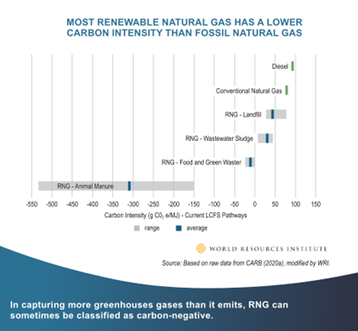The extent of food waste in our society is an increasing problem for one of our most valuable resources. Approximately one-third of the world's food supply is wasted each year, around 40 percent in the United States alone, creating consequences that impact the environment, public health, and the economy.
Food waste that ends up in landfills breaks down with little to no oxygen present and produces large amounts of methane gas. This contributes significantly to global warming, as methane is estimated to be approximately 25 times more potent than carbon dioxide when it comes to trapping heat in the atmosphere. Globally, food waste accounts for around eight percent of greenhouse gas emissions, so finding a practical solution represents a major opportunity to combat climate change.
In addition to environmnetal impact, food waste also has economic consequences. The resources and energy used to process, transport, and store organic waste materials can be costly and contribute to higher prices for consumers.
Furthermore, businesses that produce food waste have lower profit margins due to the disposal costs associated with discarding unusable or expired items. Food loss costs the global economy around $1 trillion annually. Yet, while this scale amount is wasted, some populations remain hungry and malnourished.
Food waste to fuel
Renewable natural gas (RNG) is a sustainable and renewable energy source derived from organic waste, including food waste. The process of converting food waste to RNG involves collecting food waste and processing it through anaerobic digestion.
Once the biogas is produced, it is then purified and injected into natural gas pipelines. To then upgrade to RNG, the methane content is increased by removing water vapor, carbon dioxide, hydrogen sulfide, and other impurities, which significantly reduces their environmental impact and increases the economic value of RNG.
Considered a carbon-neutral fuel, RNG comes from organic sources that once absorbed carbon dioxide from the atmosphere during photosynthesis. By capturing methane that would otherwise be released into the atmosphere and repurposing it as fuel, RNG can be used as a cleaner, carbon-neutral energy source. It has even greater benefits when it’s produced from organic waste that would otherwise decay and emit methane emissions, such as food waste.
As an alternative fuel for heating, transportation, and electricity generation, RNG reduces greenhouse gas emissions, improves air quality, and diverts waste from landfills. It also provides an opportunity to create jobs and generate additional revenue for businesses that produce and sell it. RNG can provide energy security to communities, reducing our dependence on fossil fuels and supporting a clean energy economy.
Offsetting fossil fuel
The adoption of RNG is being used more frequently to offset the use of fossil fuels. In such applications, Enchanted Rock’s microgrids can be supplied by net-zero carbon RNG and injected upstream into the gas pipeline to offset the use of fossil gas.
This provides a solution for communities that rely on natural gas but want to reduce their reliance on fossil fuels. Enchanted Rock sources RNG captured from facilities that emit methane such as food waste and agricultural operations, making it part of the circular economy with neutral or negative carbon intensity.
In addition to offsetting the use of fossil fuels, RNG can also be used to reduce energy consumption and increase efficiency in the production process. Enchanted Rock is leveraging these RNG offsets specifically in the data center space. These facilities are fueled by natural gas, and Enchanted Rock will inject an equal amount of RNG into the grid to offset their natural gas consumption.
Enchanted Rock recently announced a partnership with US Energy to procure RNG sourced from diverted food waste, which will support a data center project in San Jose, California. All of the project’s resulting gas will have a carbon intensity score of no more than zero, supporting the data center operator’s efforts to meet their sustainability commitments.
This project is part of a larger trend in the industry for data centers to reduce their emissions through renewable energy sources. RNG allows data centers to minimize their carbon footprint while continuing operations and improving public health for the surrounding community, and Enchanted Rock plans to continue investing in RNG projects moving forward.
More from Enchanted Rock
-

Sponsored Five benefits of upgrading from diesel gensets to natural gas microgrids for backup power
When it comes to backup power, is it time to ditch the diesel?
-

Sponsored Data centers as good grid citizens
How microgrids can turn facilities into welcome members of the community
-

Sponsored Debunking natural gas myths
The part natural gas has to play in fueling the future


